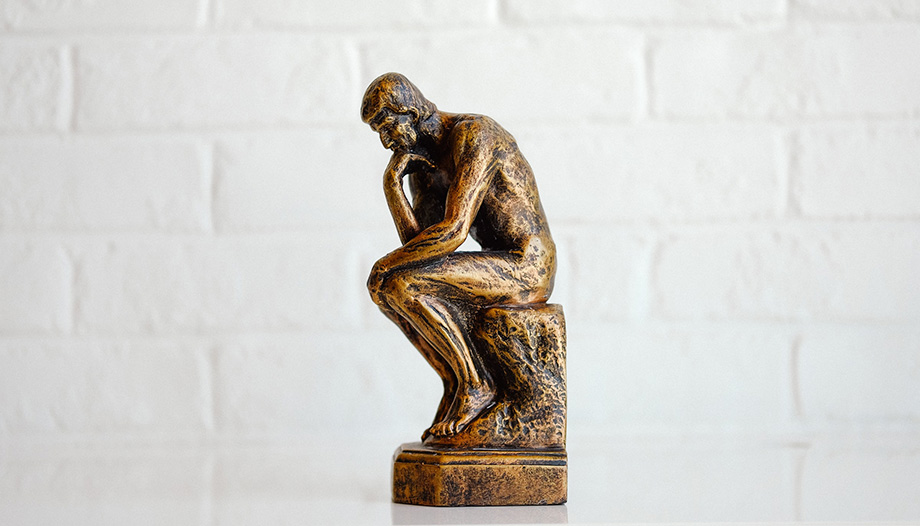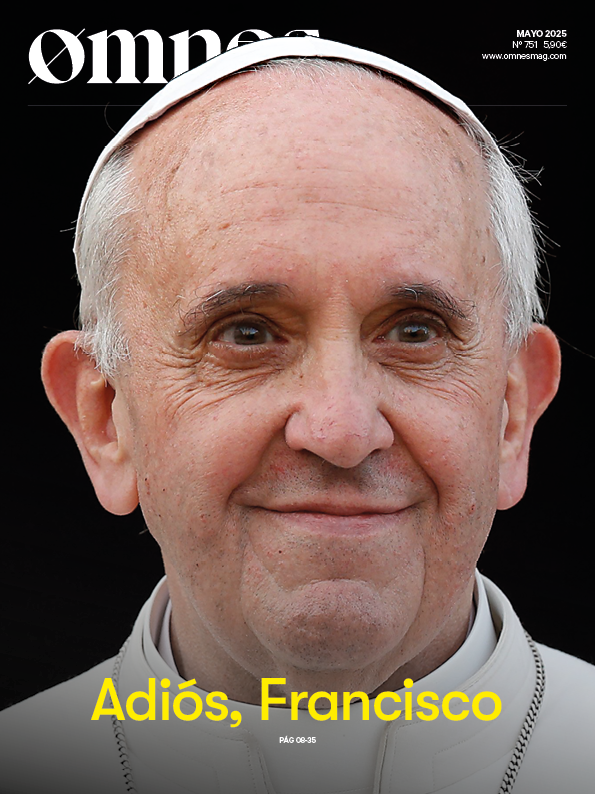A few days ago, the professor of the University of Malaga, Antonio Diéguez, asked himself these questions. "What is justice? what is freedom? what is truth? what is knowledge? what is good? what is virtue? what are my obligations to others? what is a good life". The hashtag on twitter was #lafilosofiaimporta.
Any of us could now ask ourselves these questions, or others like them. The professor of Moral and Political Philosophy, José María Torralba, of the University of Navarra, commented: "Is philosophy a useless knowledge?" And he quoted professors Diéguez and Thomas Sturm, the latter of the Autonomous University of Barcelona, who have just written an article in ElConfidencialentitled Philosophy is useful, and here's why.
"In fact, if you look closely, you will see that few things have been more transformative than philosophy. On more than a few occasions philosophical ideas have changed history". This was said by the authors, and underlined by the philosopher José María Torralba, director of the Core Curriculum Institute of the University of Navarra, who today synthesizes for Omnes some ideas on the issue.
In parallel, Elena Postigo, PhD in Bioethics, entered the debate from the beginning: "There is no Bioethics without Philosophy, although many think that it is possible to do Bioethics without Philosophy. In my perspective, they are intimately linked. Any decision on applied ethics requires prior reflection, in many cases profoundly philosophical".
"Some reduce bioethics to mere utilitarian, cost-benefit calculations or to procedural ethics. In our opinion, bioethics, as a branch of applied ethics, has a fundamental philosophical root that makes it a true human science. A root with two aspects: one anthropological (what concept of man underlies it) and the other strictly ethical," explains Elena Postigo, director of the Institute of Bioethics at the Francisco de Vitoria University. The professor will also present some of her points of view to Omnes.
Uncritical
The defense that is being made in university and academic environments of philosophy has its roots, as has been pointed out, in the fact that in the ESO of the new educational law (LOMLOE), there will be no obligatory subject of Ethics or Philosophy, not even optional (unless it is included by the autonomous communities).
The Community of Madrid has committed to maintain the optional Philosophy of 4th ESO and Psychology of Bachillerato, according to the General Director of Secondary Education, FP and Special Regime, José María Rodríguez. The meeting had been requested by the Sociedad Española de Profesorado y Plataforma de Filosofía (SEPFi) and the Asociación de Profesores de Filosofía de Madrid (APFM).
Laura Santos, professor of Philosophy at CEU San Pablo Montepríncipe school, has vindicated philosophy and the critical spirit of young people in the program The Magnifying Glassin TRECE tvTo a society that lacks philosophy, to someone who has not studied philosophy, something very serious happens. The critical spirit comes from the word krinein [in Greek], which means to filter, to discern, is to sift, to discern between the wheat and the chaff, between the accessory and the necessary, between the valuable and the non-valuable. If we do not have a critical spirit, we cannot say that we think for ourselves. This means something very important, that we are not free, and that we are not talking about democracy in its true sense. We cannot forget that ESO is the minimum compulsory education that every student in Spain must have".
"Make free decisions."
The analysis of the question on philosophy, carried out for Omnes by Professor José María Torralbais as follows:
"In ESO there will be no compulsory subject of Ethics or Philosophy, not even optional unless it is included by the autonomous communities). In this time of division and political confrontation, one of the few initiatives that the Parliament voted unanimously was to include Ethics again in ESO through the LOMLOE, which had disappeared with the LOMCE. However, in the end, the Government has decided not to include it, probably to make room for "Civic and Ethical Values".
They may appear to be similar subjects, but they are very different. In Ethics, the topics of study are presented in a critical way and the student is offered the necessary resources to understand the historical origin of the concepts and their justification. In other words, they are encouraged to develop the ability to think for themselves, learning from the great philosophers, seeing the contrast between their positions, etc. On the other hand, with "Civic and Ethical Values" we return to something similar to the controversial "Education for Citizenship".
In my opinion, civic education is very necessary, but it cannot be reduced to expounding the dominant values of a given moment, because that leaves students at the mercy of whoever governs or designs the curriculum. Such fundamental human rights issues as equality between men and women are adequately learned when each student is helped to understand the notion of dignity and is able to argue for himself or herself why discrimination should be rejected. It is not enough to label and say that a certain behavior is intolerable or despicable.
It is necessary to understand that something is good or just, not because we have agreed so at a specific moment in history or because the Constitution says so, but because we recognize a reality, in this case, the equal dignity of men and women. And this is an ethical question: how are values recognized? are they relative to culture or to each society? how can we distinguish between just and unjust values? The academic societies of philosophy are unanimous in criticizing the absence of Ethics and warn that the subject of Education in Values does not replace it.
On the other hand, with the LOMLOE, the subject of History of Philosophy is once again compulsory in the second year of Bachillerato. This is good news, even if it is outside the compulsory education of all students.
The decisive moment in a person's education is 14-17 years of age. That is why it is so important to have access to the humanities (not only philosophy, but especially literature, where books are read).
Freedom, equality
Philosophy is sometimes thought of as theories with little practical application. Nothing could be further from the truth. To give just one example, our democracy is based on two values: freedom and equality.
The way we understand them today, or rather the various ways in which they can be understood, stems from different philosophical currents. Is freedom self-determination or the ability to compromise? Are we, above all, subjects of rights or members of a community? Is equality the same as egalitarianism? Are there social differences that are justified? How should merit and effort be rewarded? What is the justification for wealth redistribution policies?
Without a minimum base of philosophical knowledge, it is very difficult for citizens to be able to make free decisions in society, without being dominated by ideological discourses of one or another sign. Ideology is based on power (economic, political or military), while philosophy is based on truth. We live in highly ideologized societies. Philosophy would help us to make truth more present in public dialogue".
"Anthropological reflection"
A nuclear idea of the director of the Institute of Biotics of the Francisco de Vitoria University, Elena Postigois the anthropological and ethical foundation of bioethics. Here are some of its postulates, necessarily excerpted.
"Bioethics is not a science in itself, it is an applied ethics, therefore of all that is moral reflection, ethical reflection. Bioethics studies interventions on life in general terms, human, animal and plant, to see what the ethical implications are, and to be able to make decisions in accordance with human dignity.
The important thing is to underline that bioethics is a branch of ethics, applied to a certain group of questions, interventions on life, and therefore the reflection of bioethics is a moral reflection. It is not just making use of principles. I say this because there is a current, one of the most fashionable in bioethics, which is principlism, which began in the 1970s. These principles are true, but they belong to classical ethics: do no harm, do good, act justly, respect freedom. Bioethics does not invent anything.
Who is a person
Secondly, philosophical reflection is very important, and in particular anthropological reflection. Because, depending on the concept of person, one will decide in one way or another how to act in relation to this being. Peter Singer, an Australian philosopher, maintains that only those who are capable of reasoning and deciding autonomously are persons. He only gives the status of person to those who manifest that they think and decide. He excludes from the group of persons the embryo, the fetus, the mentally handicapped, the comatose, the vegetative state.
Instead, from a personalist perspective, of ontological personalism, which is the perspective that I hold, that my teacher Elio Sgreccia initiated, the Christian perspective, Christian humanism provides a concept of person that is not reduced only to the function of his mental activities, but is also a being that exists, a substance with some accidents. If you understand the person in this other way, you will respect him, even in the phases in which he does not yet show that he is capable of thinking and deciding.
Hence the importance of the anthropological foundation in bioethics. Almost no model, neither utilitarianism nor principlism, takes into account the anthropological approach, and it is very important. An anthropological approach with a metaphysical background".








